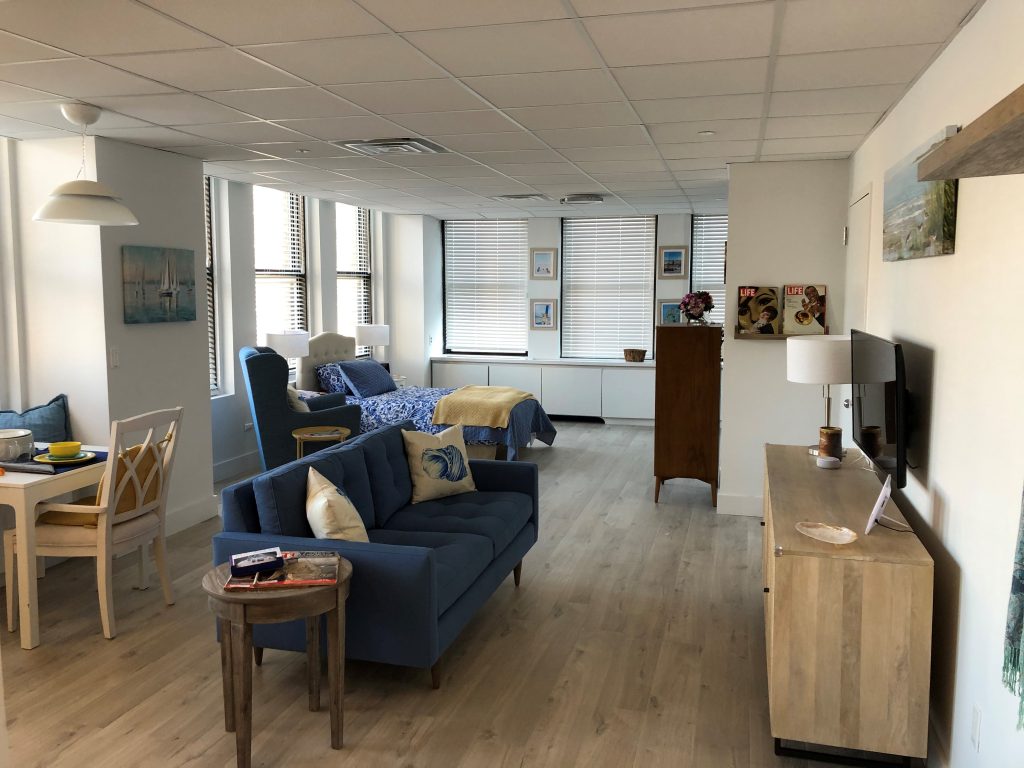Protecting Individuals with Dementia from Wandering During the Winter: 4 Tips from the Alzheimer’s Foundation of America
Wandering is a common and potentially dangerous behavior in individuals living with a dementia-related illness.
(January 22, 2024)— To help families protect their loved ones with dementia from the potential dangers of wandering in cold winter areas, where frigid temperatures, snow, and ice create additional safety risks, the Alzheimer’s Foundation of America (AFA) is providing four tips dementia family caregivers can use to reduce the chances of wandering during the winter and be prepared to quickly respond to an emergency.
Wandering is a common and potentially dangerous behavior in individuals with dementia. Once the individual shows signs of wandering, they are at high-risk of wandering away or becoming lost. They can become disoriented, unable to remember how to get back home, or know how, or who, to call for help. They could leave the home without dressing appropriately.
“Wandering or getting lost can occur at any stage of Alzheimer’s disease. So there are serious risk factors that dementia family caregivers need to be mindful of, especially now in cold, windier weather areas,” said Jennifer Reeder, LCSW, AFA’s Director of Educational and Social Services. “The disease can cause disorientation and confusion, which can lead to the person getting when they may be in search of something or someone or attempting to escape excessive stimuli. Taking steps to address the reasons why someone may leave their environment, while also having an emergency plan ready, are two major ways family caregivers can protect their loved one’s wellbeing during the winter and throughout the year.”
AFA offers these four tips to help families protect their loved ones with dementia from wandering during the winter:
Understand the causes of wandering. Walking outdoors can bring a feeling of purposefulness and pleasure to someone living with dementia, especially if they have lived an active lifestyle and enjoyed the outdoors before the onset of dementia. Identify consistent and sustainable ways to support these experiences in a safe environment, such as creating walking paths around the home with visual cue; engaging the person in simple tasks; and providing stimulating and enjoyable activities (i.e., exercise, music, crafts).
Wandering can also be a response to excessive stimuli, triggered by the need to get away from noises and people, or an expression of an unmet need (i.e., hunger, thirst, a need to use the bathroom). Ensuring basic needs are met can reduce the chances of wandering.
Safeguard the home. Facilitate safe movement by avoiding clutter and eliminating tripping hazards. Be mindful of how objects like car keys, jackets, and purses might motivate the person to leave suddenly. Install electronic chimes or doorbells on doors so someone is alerted if the individual tries to exit. Consider utilizing a smart doorbell with an app that can notify you when someone is entering or exiting the home.
Be aware of your loved one’s patterns. Know what times of the day may be more activating than others, and provide activities during those periods. Encourage healthy sleep habits to reduce the chances the person might leave in the middle of the night. If your loved one does wander, keep a record of their patterns (frequency, duration, time of day, etc.) to help guide you in the future.
Develop a safety plan. Keep a list of places the person may go (i.e., previous home or place of employment, favorite spots around town), a recent close-up photo, and medical information readily accessible to give to first responders if needed. Maintain a list of people to contact if the person goes missing and ask neighbors to call you if they see the person out alone. See if your community has a safety program for families affected by dementia, such as Project Lifesaver. These programs allow you to voluntarily enroll your loved one to receive locating technology. First responders can then activate the technology if the person goes missing. When possible, encourage and incorporate input from the person when developing the plan.
AFA’s Helpline, staffed entirely by licensed social workers who are specifically trained in dementia care, can provide additional information about wandering prevention tips. The Helpline is available seven days a week by phone (866-232-8484), text message (646-586-5283), and web chat (www.alzfdn.org).










